William M. Pinzler
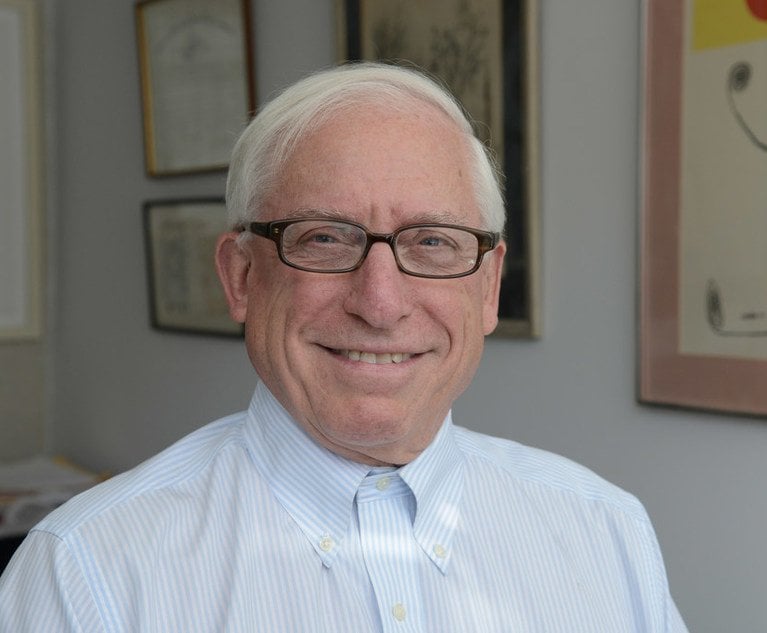
January 23, 2025 | New York Law Journal
‘Catholic Charities v. Wisconsin Labor and Industry Review Commission’: Another Consequence of 'Hobby Lobby'?While at one time there would have been no question that Catholic Charities should pay unemployment tax, ever since the decision in Burwell v. Hobby Lobby, there is no certainty as to the result to be reached here.
By William M. Pinzler
8 minute read

August 14, 2023 | New York Law Journal
Memo on the Sincerity of Religious BeliefsWilliam Pinzler shares his opinion that challenging sincere religious belief claims should not be limited to criminal or death row cases, they should be a part of civil litigation as well.
By William M. Pinzler
7 minute read
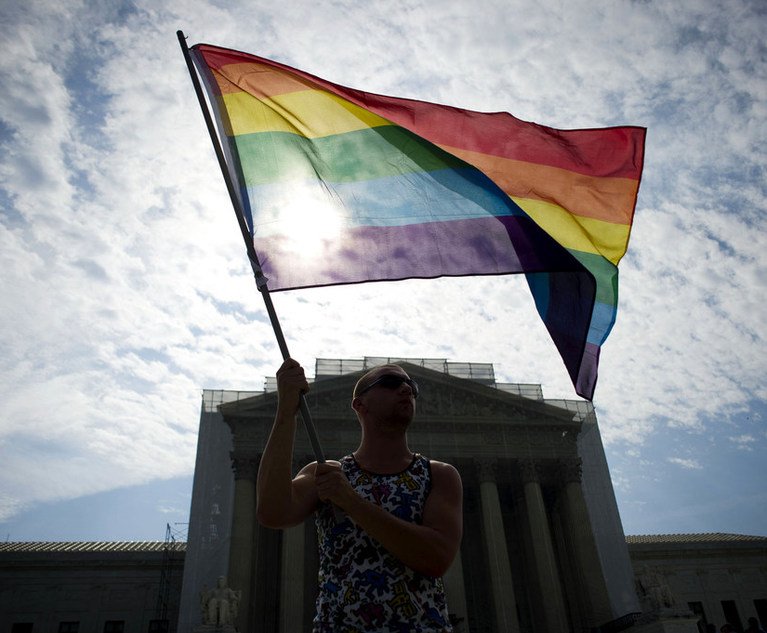
July 17, 2023 | New York Law Journal
A 'Sincere Religious Belief' Exception to a Public Accommodation StatuteIn 303 Creative LLC et al, v. Aubrey Elenis, the Supreme Court, for the first time in its history, grants a business, open to the public, the right to refuse to serve members of a protected class. Courts regularly review and challenge assertions of innocence (or mitigation) in criminal cases based on claims of sincere religious belief. Courts do not undertake such reviews in civil cases. If courts challenged assertions of sincere religious belief, would they have been upheld?
By William M. Pinzler
9 minute read
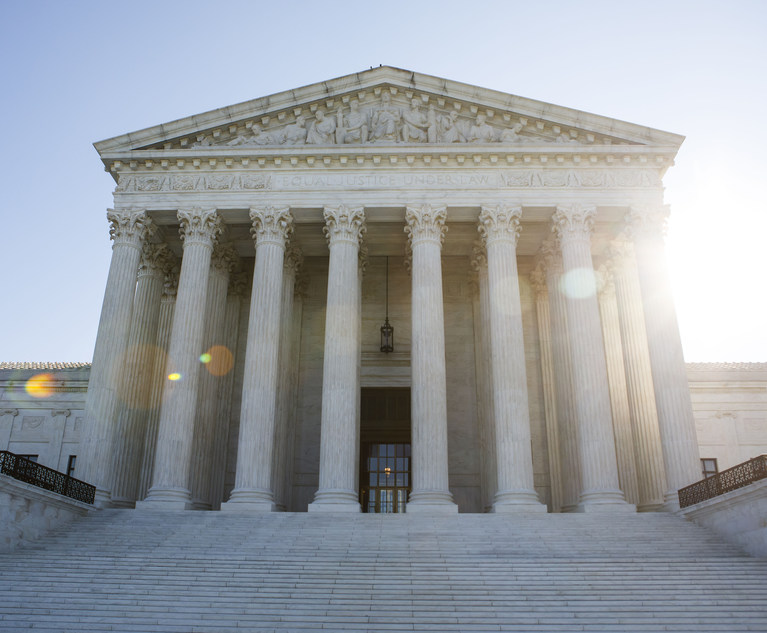
July 06, 2022 | New York Law Journal
Tension Between Free Exercise and Establishment Clauses Should Be Cherished"The Roberts court is populated with judges who are religious and believe that religious principles, precepts and beliefs are paramount. It is altering the balance between the Free Exercise Clause and the Establishment Clause. The tension between them is one that should be cherished rather than skewed to favor one clause over the other for the perceived benefit of those who claim loudly their religious beliefs."
By William M. Pinzler
9 minute read

December 17, 2021 | New York Law Journal
Vaccination Objections That Contradict the Position of Spiritual Leaders Could Become a Watershed IssueCan someone have a sincere religious belief not to take the vaccine when the leader of their congregation supports injections?
By William M. Pinzler
9 minute read

July 13, 2021 | New York Law Journal
SCOTUS Avoids Controversy in 'Fulton'In the recent case 'Fulton v. Philadelphia,' the Supreme Court "found a way to avoid a controversial decision" when faced with the conflict between the Free Exercise Clause and anti-discrimination laws.
By William M. Pinzler
8 minute read
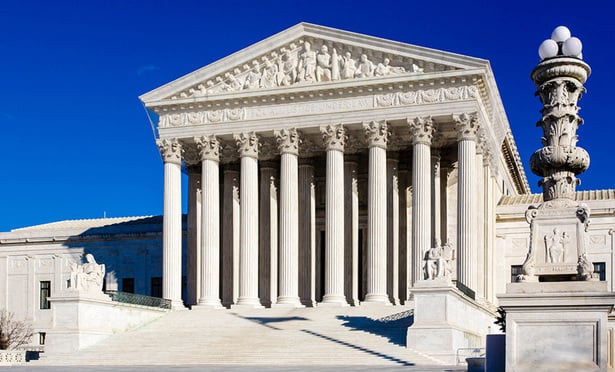
November 03, 2020 | New York Law Journal
'Fulton v. Philadelphia': A Conflict Between Anti-Discrimination Laws and the Free Exercise ClauseThis case will be followed closely as it will be the first constitutional case heard by Justice Barrett.
By William M. Pinzler
8 minute read
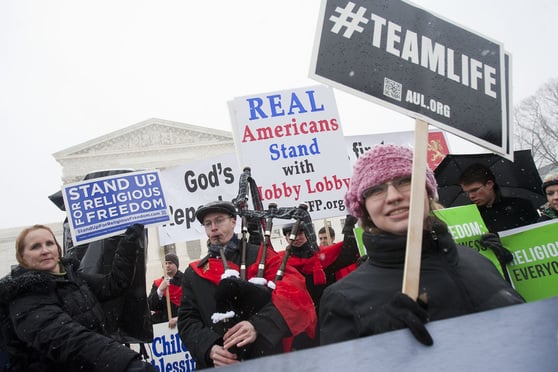
February 28, 2020 | New York Law Journal
The Conscience Exemption in the Supreme CourtThe focus of this conflict is primarily contraceptive coverage in employer insurance plans, abortion and gay marriage.
By William M. Pinzler
19 minute read
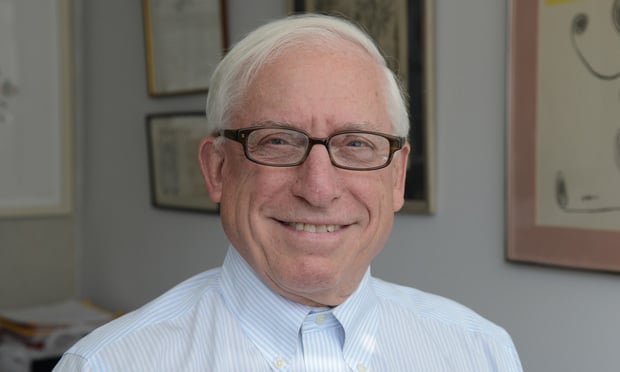
September 13, 2017 | New York Law Journal
'Masterpiece Cakeshop' and Sincerity of Beliefs: the Aftermath of 'Hobby Lobby'William M. Pinzler discusses "Masterpiece Cakeshop and Jack Phillips v. Colorado Civil Rights Commission and Craig and Mullins," a case the Supreme Court has granted certiorari which presents the question of whether applying Colorado's public accommodations law to compel a "cake artist" (a baker) to prepare a cake in honor of a customer's gay wedding violates his "sincerely held religious beliefs" about gay marriage and thus violates the Free Speech or Free Exercise clause of the First Amendment.
By William M. Pinzler
8 minute read

September 04, 2014 | New York Law Journal
'Hobby Lobby' and Piercing the Corporate VeilWilliam M. Pinzler writes: The universal requirement for piercing the corporate veil is that the creditor must show that the owners exercised complete domination of the corporation in its operations, in other words, the corporation is the "alter ego" of its owners. Surely, the owners of Hobby Lobby, Mardel and Conestoga Wood demonstrate that they are exercising such domination by asserting their individual religious beliefs and imposing them on their employees.
By William M. Pinzler
12 minute read
Trending Stories
- 1Trump Signs Executive Order Creating Strategic Bitcoin Reserve
- 2St. Jude Labs Sued for $14.3M for Allegedly Falling Short of Purchase Expectations
- 3'Ridiculously Busy': Several Law Firms Position Themselves as Go-To Experts on Trump’s Executive Orders
- 4States Reach New $7.4B Opioid Deal With Purdue After SCOTUS Ruling
- 5$975,000 Settlement Reached After Fall on Sidewalk



